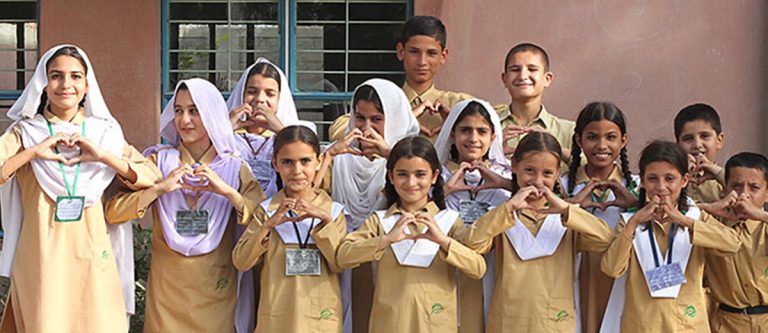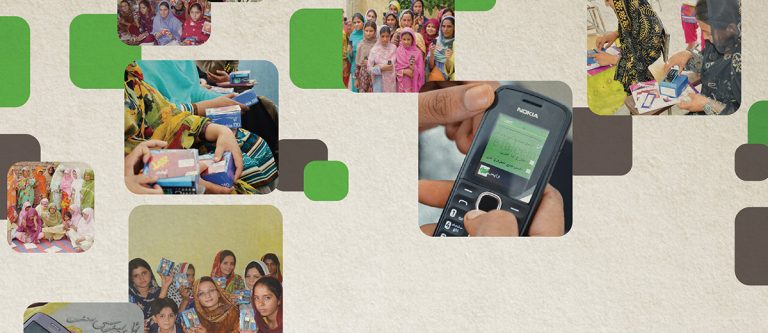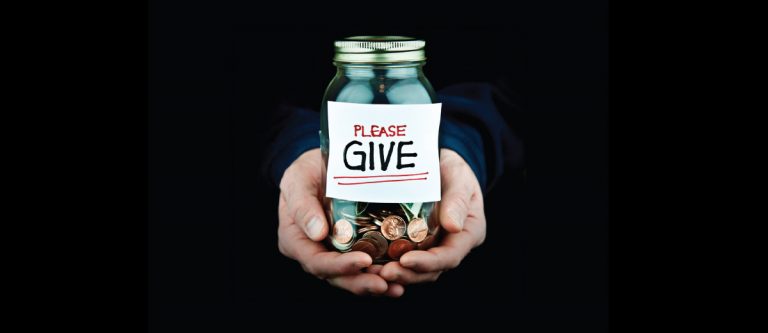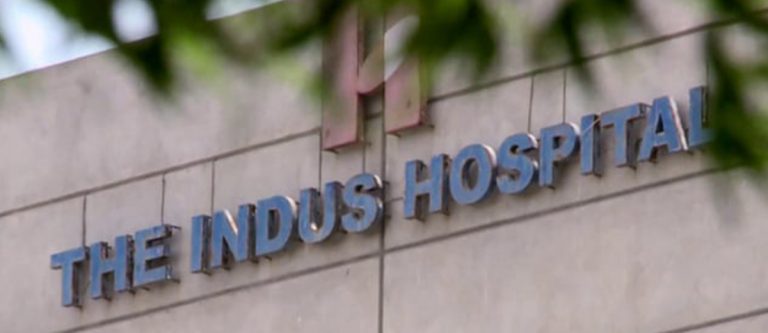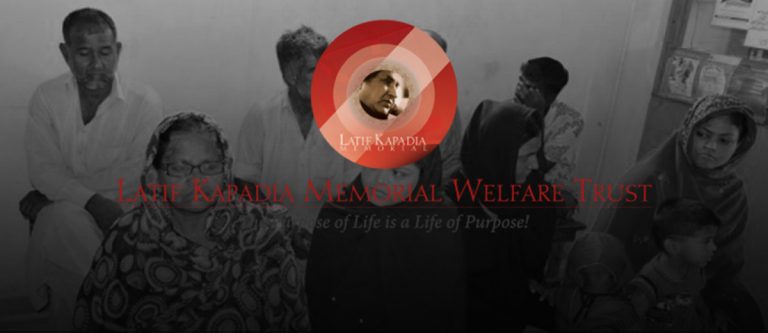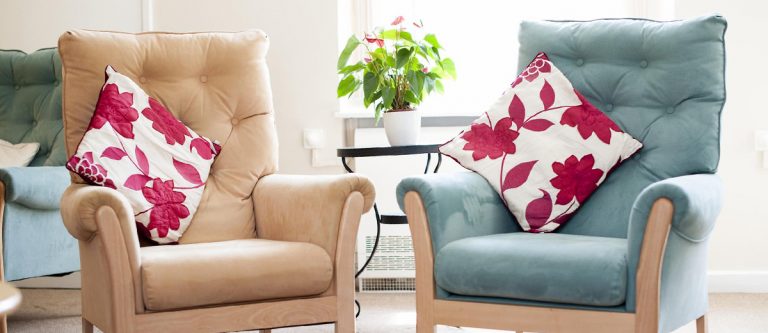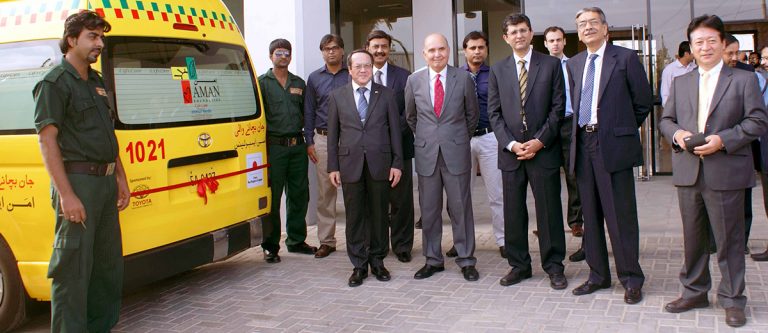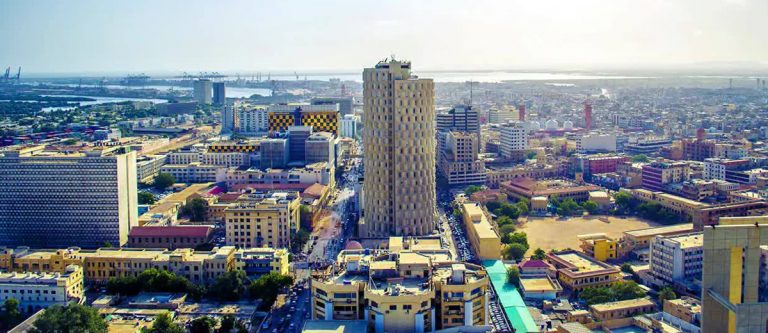Compiled By Umer Bin Dawood
Named after the famous drama and stage actor; Latif Kapadia Memorial Welfare Trust operates to support and assist the under privileged by providing education and health facilities in Karachi and adjoining areas
In an ideal world no one will go to bed hungry, every child will get an equal chance at education, there won’t be people dying due to lack of treatment and there won’t be any loss of life post catastrophe. Only in an ideal world though, because the reality is starkly different and alarming if one looks at the statistics available. Taking the gaze away from the world at large, eradication of poverty remains the biggest challenge the government of Pakistan faces. Colossal social problems and deprivations, mostly poverty-related, continue to shame the country every day. Most citizens believe that it is the job of the government to alleviate the various social problems plaguing the country, because after all, the leaders represent the people and are expected to provide solutions; to work their magic. Sadly, history teaches us another lesson. Leaders across the world have taken deep interests in wiping away poverty and its varying forms, but they have never been successful in creating the ideal world, not even close. In short, while the government must do its part to help alleviate our worst problems, it alone cannot solve them.
Fortunately, there are people out there who show extreme concern for the situation prevalent in the country and are ready to come out of their comfort zone to lend a helping hand to the government for battling the various social problems and their root cause. Such a man was the late Latif Kapadia, a famous stage and drama actor, who was very well known for being a philanthropist, a man who was always concerned about the well-being of the under-privileged. His charitable heart inspired countless people associated with him, so much so that after his death in March 2002, a team of his admirers established Latif Kapadia Memorial Welfare Trust (LKMWT) to assist and support families by providing educational and health facilities on the outskirts of Karachi and few other cities.
Established in 2002, Latif Kapadia Memorial Welfare Trust is purely a non-business organization which has completed 13 years of its operations. LKMWT is involved in supporting social and humanitarian causes as well as being conscious of discharging its responsibilities in line with highly ethical business practices. Although the venture extends support to a variety of causes but for now are primarily focused on health and education. As far as education is concerned, the organization does all it can to help the masses attain literacy. LKMWT actively supports educational welfare projects such as TCF, Reflections, Zindagi Trust and Family Education Services Foundation etc. It also supports students throughout the country who show a desire to attain higher education but are limited by their circumstances. LKMWT either gives their families monetary assistance, or funds their education or buy educational accessories for them.
The organization’s first health project was MediHealth Clinic at Shah Faisal Colony that started in 2007, which operates to provide expedient and consistent clinical services on minimal charges. In January 2012, a second clinic was established in Malir Khokrapar. This location was chosen after careful analysis keeping in view the medical need of the underprivileged. Malir Khokrapar is a suburb in the city where people were deprived of basic medical facilities before the organization opened its clinic. LKMWT has also held several breast cancer awareness camps and free health & eye camps around the city.
During the 2008 earthquake, the management at LKMWT decided to provide relief equipment to people stranded in areas not being covered by other NGOs. Based on this philosophy, the volunteers of LKMWT were able to reach out to people in Shikarpur and Makli area of Thatta with food and medicines. In 2011, the charity was able to donate Rs. 4 lacs through volunteers already working on-ground in the flood affected areas of Sindh.
Currently, new clinics are being planned to expand LKMWT and its health provisioning welfare activities. Since they are in the pipeline, the projects are currently in need of funds to make them a flourishing reality in achieving Latif Kapadia’s mission to help people.
Ahmed Kapadia is the man in charge of LKMWT, the man who has entrusted upon himself the responsibility to take the charity further and use its resources to change the lives of millions and then possibly billions of people in need. When asked about the idea behind the charity, Ahmed Kapadia had some nostalgic words to say, “My father, the late Latif Kapadia, was a great human being. It was to honor his memory and his commitment to social welfare which brought the Latif Kapadia Memorial Welfare Trust into the fray. I and my colleagues have always run this charity to give something back to the society which has made us the people we are today and in return bless my dad’s soul for whom this venture was started. I get great pleasure out of helping people in desperate need of someone’s support and I am sure my dad is somewhere up there smiling at me too.’’
He then talked about his vision for the charity and the future of philanthropy, “We envision a society where people are treated with respect and dignity and have all the access to their basic rights of health & education without any discrimination to their cultural values and social class.The problem is that our vision faces a constant challenge by the ever changing environment we live in. These changes have forced thought leaders to reconsider their philanthropic approaches and go back to the drawing board. We have been following this change for quite a while now, and have been participating in it. Now is the time for charity by all; the democratization of philanthropy. This is a moment in history when the average person has more power than ever. Social media sites and easy access to the internet has enabled people to start up charitable organizations from home which provide peer to peer access to the potential donors. Words like ‘philanthro-entrepreneur’ and ‘venture philanthropy’ are quite the rave and whatever we call these new ideas, they are here, and I think they are going to be quite significant in our quest to accomplish LKMWT’s vision. Our immediate plan is the setting up of a Clinical Laboratory in the premises of existing clinics to extend help to needy patients in order to benefit them from the convenience of on-site testing and timely results. We also plan to start an immunization program which will contribute to a healthy start to lives and ensure a child has a fighting chance at a better future. Vaccines are an important component to LKMWT’s holistic approach to nurturing a healthy community. Insha-Allah all our immediate and long terms goals will be achieved in due time, because we will not stop pushing until every single man, woman or child in need is taken care of.’’
DRIVING LKMWT
Name: Mrs. Mumtaz Liaquat Ali
Designation: President, Working Committee – Latif Kapadia Memorial Welfare trust
Synergyzer: Please detail your experience with socially responsible initiatives.
Mrs. Mumtaz Ali: I have been working with the social sector for the past 22 years; having founded the cancer hospital, Bait-Ul-Sakoon. . I also worked with Karwan-e-Hayat. Currently, I’m the Vice President and Treasurer at Behbud Association, Karachi. With my experience, I helped establish the association and once that was done, I joined LKMWT.
Synergyzer: What motivated you to working for the social sector so diligently?
Mrs. Ali: My father’s affiliation and community service for the Spencer Eye Hospital was my inspiration. Ever since my childhood, I used to see him come home from work, tired, yet willing to facilitate people who could not afford healthcare with getting surgeries done as well as providing support.
Synergyzer: What is your role with LKMWT? How have you improved things?
Mrs. Ali: Being the President at LKMWT, I am overlooking the whole setup. Since it is an outpatient facility, I have made sure that there is experienced and educated medical staff running the MediHealth – I & II facilities efficiently, while cutting down the labor costs and improving the quality of the healthcare extended.
Synergyzer: How can a person decide when giving to any charitable initiative, if it is genuine and should be donated to?
Mrs. Ali: You can judge the organization by the area it is located in and how much is being charged from each individual. For instance, MediHealth clinics are located in slum areas like Shah Faisal Colony and Malir Khokrapar and we charge only Rs. 25 from every patient.
Also, if possible, potential donors can decide based on references about individuals running any organization if the initiative is genuinely working for the welfare of people or engaged in fraudulent activities.
Name: Dr. Seema Dilshad
Designation: Sonologist
Having graduated from The Muhammadi College as a Homeopathic doctor, Dr. Seema Dilshad conducts ultrasounds at MediHealth-II and assists patients in seeking further medical attention if required. Experienced as a Sonologist for three years, her decision to work at LKMWT was out of sheer compassion for the less privileged, who regardless, need basic healthcare. “I have always wanted to work for a setup working for the underprivileged. Being a doctor, I can help people with health consultations and LKMWT has given me the opportunity. LKMWT provides low cost treatment and even free treatment to those who cannot afford it.”
Umer Bin Dawood works at a leading PR agency in Pakistan and likes to keep a keen eye on all the latest developments in the world of PR, Marketing and Football. He can be reached at his Twitter handle: @UBD_26.
Contact:
House # 69-B, Sindhi Muslim Cooperative, Housing Society, Off Shara-e-Faisal, Karachi-74400, Pakistan.
Tel: +92-21-34389706
Cell: +92-315+8223499
Website: www.lkmwt.com
